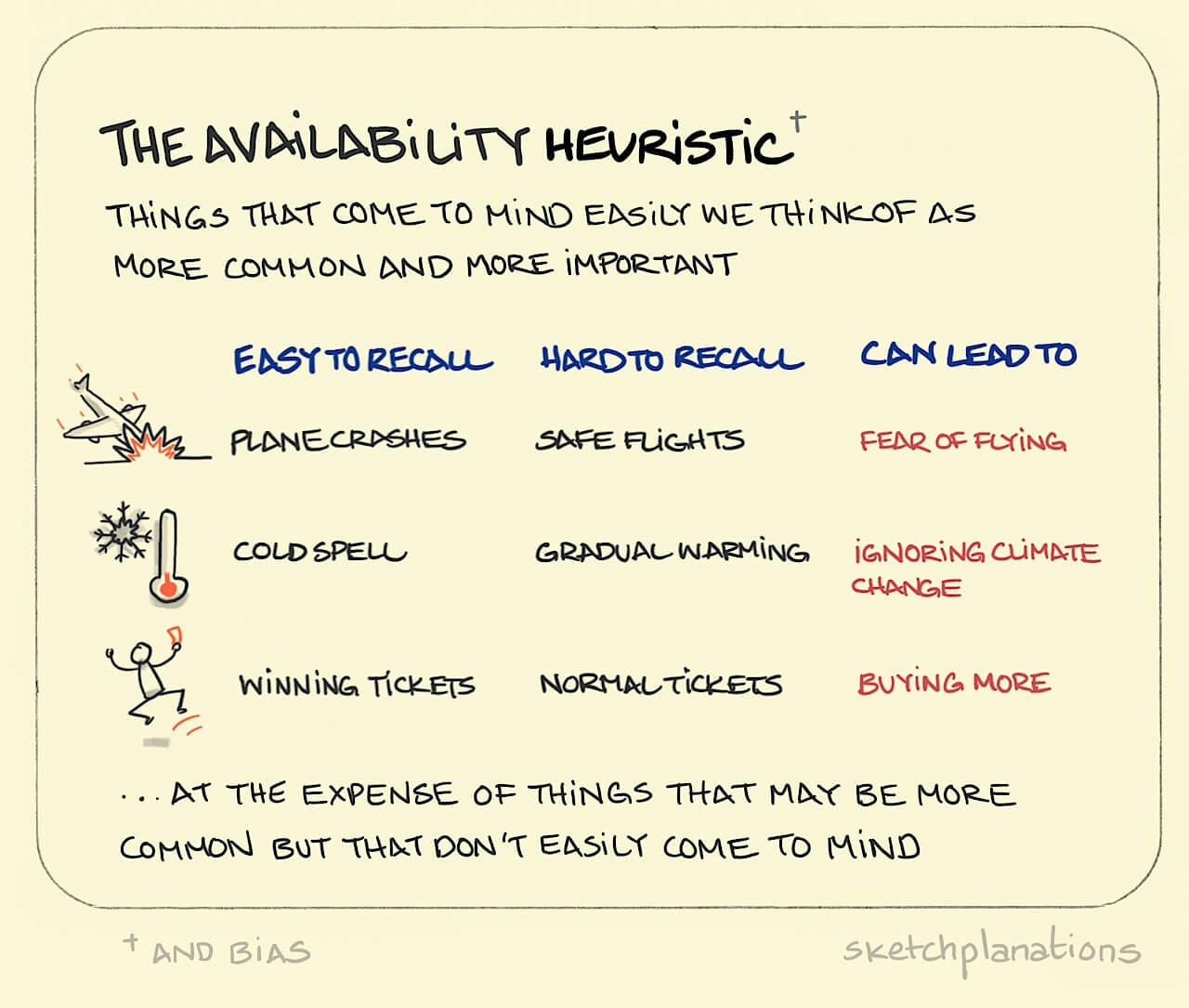The availability heuristic (and bias)

- Download
- Copied!
👇 Get new sketches each week
The availability heuristic is a deceptively simple, almost too simple to notice, heuristic where we consider the likelihood of events by the ease with which relevant instances come to mind.
In simple terms, things that we can easily recall or where we can think of examples, we generally consider as more important or more common than other things. A heuristic is a mental shortcut to solve a common problem.
If we were asked to consider the divorce rate in the community, we might evaluate that by considering how many of our acquaintances are divorced. If none of your friends are divorced, you’re naturally less likely to think the divorce rate locally will be high.
In many situations, it makes good sense to give credence to what you remember easily. However, in situations involving probabilities, in particular, the heuristic will lead us predictably astray such that more often I think of it as an availability bias — a predictable pattern of thought and behaviour leading to incorrect conclusions.
So, the vividness of shark attacks causes us to overrate how likely they are to actually occur. Or we’re more likely to worry about lions than hippos, even though hippos kill more people each year than lions. Or the risk of being struck by lightning vs stuck by a car crossing a road. Or, the prevalence of violent crime on the news compared to the likelihood of you being a victim. Or the fact that it’s cold outside and yet the planet is gradually warming.
Here’s a 1973 Kahneman and Tversky paper: Availability: A Heuristic for Judging Frequency and Probability

